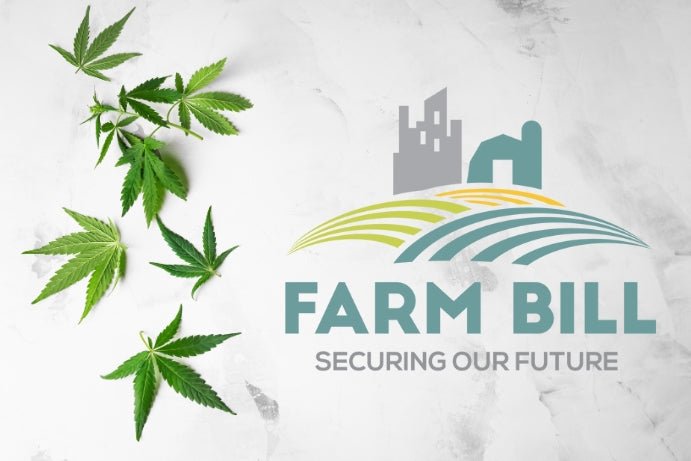Both states join a growing chorus lining up to either limit or outright ban products containing intoxicating hemp derivatives.

It has been a hectic week in the world of hemp and cannabis. With the U.S. Drug Enforcement Agency (DEA) finally deciding to reschedule cannabis as part of the Controlled Substances Act and Senate lawmakers announcing proposed frameworks for the much-anticipated Farm Bill renewal this week, advocates and stakeholders from both industries had cause for minor celebrations as the archaic legislative blockades for each market sector continue to fall.
However, with much of the attention focused squarely on Capitol Hill, there was much less welcome news at the state level, particularly for those invested in the intoxicating hemp derivative (IHD) market.
According to multiple media outlets, lawmakers in Georgia and Connecticut advanced legislation aimed squarely at restricting the spread and reach of products containing IHDs this week.
In Georgia, Gov. Brian Kemp (R) signed SB 494 into law this week after both legislative chambers passed the measure a little over a month ago. The new law does not ban the sale of IHD products. However, it limits sales of those items to individuals over 21, including products containing CBD extracts.
The new statute also:
- Updates rules for licensing, certificates of analysis, inspection and testing, retail operations, and signage.
- Prohibits hemp compounds from being used in alcoholic beverages and food, except for gummies or extracts.
- Bans packaging that could be viewed as attractive to children.
- Closes a loophole that had been the basis for the legal sale of THC-A
In Connecticut, the House of Representatives approved a measure restricting and regulating hemp products in the state. According to CT News Junkie, House Bill 5150 passed by a 130-16 vote and will now move to the state Senate for debate and a vote.
If approved, the bill would:
- Amend the definition of high-THC products by raising the THC level per serving from 0.5 to 1.0 milligrams of THC.
- Remove the differentiation of THC potency limits for various product types.
- Ban the sale of hemp-derived products in groceries, convenience stores, and pharmacies.
- Allow social equity cultivators to partner with hemp producers and acquire licenses to make products outside “disproportionately impacted” zones.
- Include tribal reservations in those zones.
Unlike many other states, Connecticut’s approach focuses more on regulation than abolition, although the proposed measure bars IHD products in several retail categories.
For many CT lawmakers, like Republican state Rep. David Rutigliano, the goal is a balanced approach that addresses health and safety concerns while preserving the economic survival of the burgeoning industry.
“It’s already legal. We’re trying to regulate it in a way that makes it safer,” Republican state Rep. David Rutigliano told CT News Junkie, referencing hemp.
"It’s already legal. We’re trying to regulate it in a way that makes it safer."
- CT Republican State Rep. David Rutigliano
With Election Day six months away, the decisions and actions taken by lawmakers and regulatory officials at the state and federal level concerning what to do with hemp, and more importantly, its intoxicating derivatives, could significantly impact who wins and who loses come November.
These new laws being enacted and considered in Georgia and Connecticut could serve as better and more sustainable compromises than some of the severely restrictive and harsher plans being pushed in other more conservative jurisdictions.








































